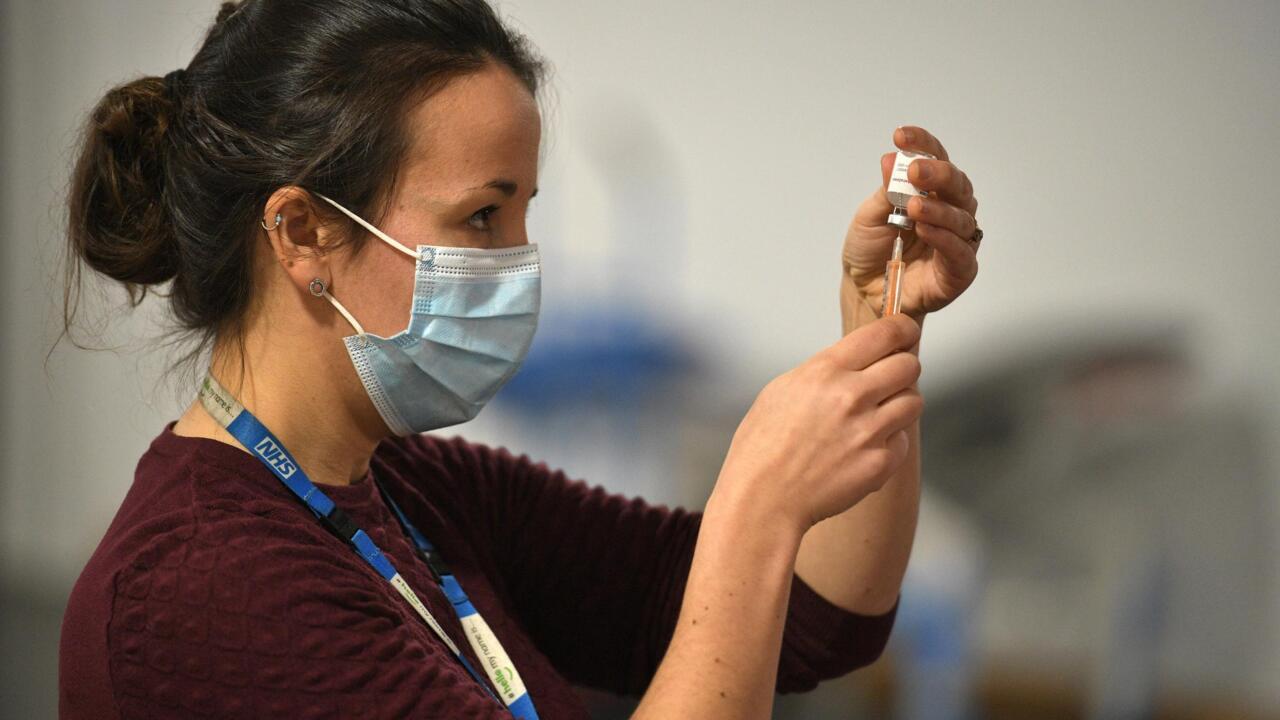
Issued on:
A warning from AstraZeneca that initial supplies of its Europe-bound Covid-19 vaccines will be lower than expected has sparked new concern over the rollout of inoculations, with some countries planning for a sharp drop in deliveries.
Friday's announcement by the British pharmaceutical firm followed another last week by Pfizer, which said it would delay shipments of its vaccine for up to a month due to works at its key plant in Belgium.
The companies' warnings come with worry deepening over new Covid-19 variants, particularly one that emerged in Britain and which is more infectious than the original strain.
Europe has now recorded more than 692,000 virus deaths and nearly 32 million infections.
The EU has so far approved vaccines from Pfizer and its German partner BioNTech as well as from US company Moderna.
It has not yet approved the vaccine from AstraZeneca and its partner the University of Oxford, but is expected to make a decision by January 29.
AstraZeneca said in its statement that if EU approval is granted, the "initial volumes will be lower than anticipated", although the start would not be delayed.
The company blamed "reduced yields at a manufacturing site within our European supply chain".
It said it would in any case supply the EU with "millions of doses" while ramping up production in February and March.
The announcement led to "deep dissatisfaction" from EU member states, which "insisted on a precise delivery schedule", said European Commissioner for Health and Food Safety Stella Kyriakides.
'Very, very bad news'
Austrian health chief Rudolf Anschober called it "very, very bad news" and said his country would receive in February only slightly more than half of the 650,000 AstraZeneca doses it had anticipated.
Lithuania said it was expecting an 80 percent reduction in AstraZeneca doses in the first quarter.
Irish Prime Minister Micheal Martin said "it certainly does have the potential to impact on the wider vaccination programme ... It will disrupt our plans."
Some government officials however sought to reassure their countries' residents, who are weary and battered by months of the pandemic and already on edge over slow vaccination rollouts.
"We have new vaccines on the way. We have Pfizer, which is increasing its production capacities," French minister-delegate in charge of industry Agnès Pannier-Runacher told France Inter.
The EU had initially ordered up to 400 million doses of the AstraZeneca vaccine.
In total, the EU has secured contracts for more than two billion vaccine doses for a total population of 450 million.
The AstraZeneca vaccine has the advantage of being cheaper to produce than that of its rivals as well as being simpler to store and transport.
'Disappointment'
German Health Minister Jens Spahn also sought to downplay the announcement's effect, saying that after the jab's expected approval in a week's time "there will be AstraZeneca deliveries in February".
"How much, we must still clarify with AstraZeneca and the European Union in the days ahead," he said.
Sweden's national vaccination coordinator Richard Bergstrom said he expects his country to receive around 700,000 doses in the first month after the vaccine is authorised compared to one million expected initially.
Norway, which is not an EU member but which follows decisions made by the bloc's medicines regulator, expressed "disappointment".
The country's FHI health authority now plans to receive only 200,000 AstraZeneca doses in February – far less than the 1.12 million initially expected.
Meanwhile, the Pfizer delay announced last week was continuing to draw criticism.
Pfizer said on January 15 that modifications at its Puurs factory were necessary to ramp up vaccine production capacity from mid-February.
"We believe that Pfizer is currently at fault," Domenico Arcuri, Italy's special commissioner for the pandemic, said in La Stampa newspaper on Saturday, confirming the country planned to pursue legal action against the company.
"The 20-percent reduction in Pfizer vaccine supplies is not an estimation, but a sad certainty," he said, adding that Italians' health was not "negotiable".
Italian Prime Minister Giuseppe Conte said in a Facebook post Saturday that any delays in vaccine supplies amount to serious violations of contractual agreements and cause “enormous damage” to Italy and other European countries.
French Secretary of State for European Affairs Clément Beaune on Friday called on Pfizer to "honour its commitments".
(FRANCE 24 with AFP)
Business - Latest - Google News
January 24, 2021 at 01:18AM
https://ift.tt/3sQU7Yu
AstraZeneca says Covid-19 vaccine deliveries to Europe will be ‘lower than expected’ - FRANCE 24 English
Business - Latest - Google News
https://ift.tt/2Rx7A4Y
Bagikan Berita Ini














0 Response to "AstraZeneca says Covid-19 vaccine deliveries to Europe will be ‘lower than expected’ - FRANCE 24 English"
Post a Comment